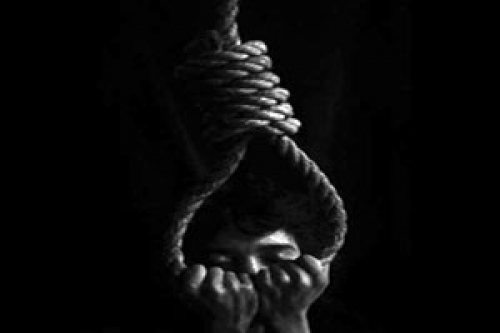Suppose your child suffers from a serious illness which is intolerable for it, would you dare euthanize it heartlessly to relieve it of the pain and suffering? What your morality suggests in such a case? In other words, if you do this mercy killing, will it be right morally or you will feel a guilty conscience? I don’t know about you, but my morality suggests that the “right to life” is inviolable and however kills one intentionally in one way or another for any reason, will be sinful/criminal. It further suggests that the ill must be taken care of and sympathized more than anyone. If I deny my morality and commit such an act, my conscience won’t leave me alone and will reproach me persistently.
Today, one of the most important public policy debates surrounds the issues of euthanasia and assisted suicide. Euthanasia refers to the practice of intentionally ending a life in order to relieve pain and suffering. In some countries, there is a divisive public controversy over the moral, ethical, and legal issues of euthanasia. Those who are against euthanasia may argue for the sanctity of life, while proponents of euthanasia rights emphasize alleviating suffering, bodily integrity, self-determination, and personal autonomy.
I believe that not only killing someone but even letting someone dies is morally wrong. For instance, Ahmad is rushed into hospital after being stabbed. He arrives in casualty. Although he is bleeding heavily, he could be saved. The only doctor on duty wants to go home, and knows that saving Ahmad will take him an hour. He decides to let Ahmad bleed to death. Ahmad dies a few minutes later. Ahmad’s mother arrives, and on learning what has happened screams at the doctor, “You killed my son!” The doctor replies, “No I didn’t. I just let him die.” Even though, the doctor did not kill him, he just let him die, but isn’t the doctor guilty morally? Of course, he is. He should have saved him from dying. Does your morality suggest otherwise?
It should be noted that there is a moral difference between carrying out an action, and merely omitting to carry out an action. The philosopher James Rachels has an argument that shows that the distinction between acts and omissions is not as helpful as it looks. Consider these two cases:
Smith will inherit a fortune if his 6 year old cousin dies. One evening Smith sneaks into the bathroom where the child is having his bath and drowns the boy. Smith then arranges the evidence so that it looks like an accident.
Moreover, Jones will inherit a fortune if his 6 year old cousin dies. One evening Jones sneaks into the bathroom where the child is having his bath. As he enters the bathroom he sees the boy fall over, hit his head on the side of the bath and slide face-down under the water. Jones is delighted; he doesn’t rescue the child but stands by the bath, and watches as the child drowns.
According to the doctrine of acts and omissions, Smith is morally guiltier than Jones, since he actively killed the child, while Jones just allowed the boy to die. In law Smith is guilty of murder and Jones isn’t guilty of anything.
If one doesn’t find the difference between killing and letting die persuasive in the Smith/Jones case, s/he wouldn’t find it effective in the case of the well-meaning doctor and euthanasia.
Anyhow, who is to say that the suffering of a teenager who has just flunked his most important class in school, lost his close friend, and been kicked off the football team, isn’t a suffering too great for him to bear? What if he thinks it is? Do we allow him to commit suicide – because he has the right to determine the end of his life – or do we call a crisis hotline? The question is critical, because either people do not have the right to end their lives in any circumstance, or else they do have that right, and the circumstances don’t matter.
A right is a moral claim. We do not have a claim on death; rather, death has a claim on us! Some see the “right to die” as parallel to the “right to life.” In fact, however, they are opposite. The “right to life” is based on the fact that life is a gift that we do not possess as a piece of property but rather is an inviolable right. It cannot be taken away by another or by the person him/herself. The “right to die” is based, rather, on the idea of life as a “thing we possess” and may discard when it no longer meets our satisfaction. The “Right to die” philosophy says there is such a thing as a “life not worth living.” For a Muslim and a Christian, however, life is worthy in and of itself, and not because it meets certain criteria that others or we might set.
Suicide is not criminalized in Afghanistan and many other countries. This is not because of any “right” to suicide. When penalties against suicide were removed, legal scholars made it clear that this was not done for the purpose of permitting suicide. Instead it was intended to prevent suicide. Suicide was decriminalized solely for the reason that it is not a punishable offence – it is of course impossible to punish a dead person. This is by no means a reflection of the general opinion of society.

